
Online Learning at HCHC
Hellenic College and Holy Cross Greek Orthodox School of Theology is pleased to offer the courses below for Summer and Fall 2025. Online courses are offered according to one of the following three modalities:
Asynchronous
Students learn on their own time. Assignments have due dates, but there are no set class times or days. Learning is through modules organized into weekly activities and assignments.
Synchronous
All students, both those living on our Brookline campus and those attending off campus or out of state, attend classes online. However, classes are held at certain times and days of the week.
Hybrid
Students on our Brookline campus attend classes in person in one of our classrooms, while remote students attend online. Classes are held at certain times and days of the week.
Courses
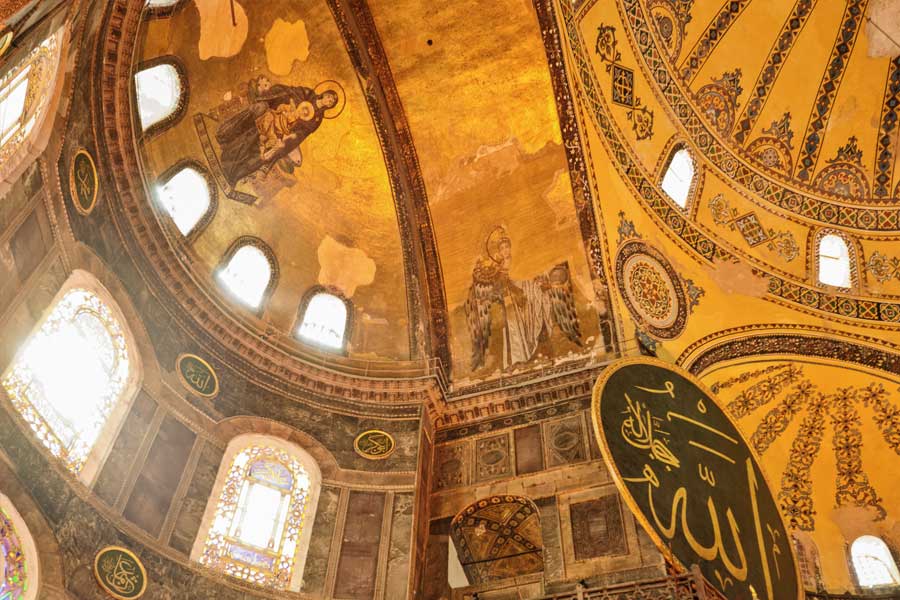
CHST 5022 Z1 | Spring 2026
Church History II: Ecumenical Patriarchate
Asynchronous
This course is designed to introduce students to the institutions, personalities, and religious and theological expressions of Church life from the medieval period to the present. Special attention will be given to the history and role of the Ecumenical Patriarchate.
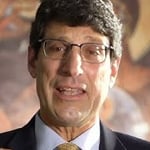
Instructor
Dr. James Skedros
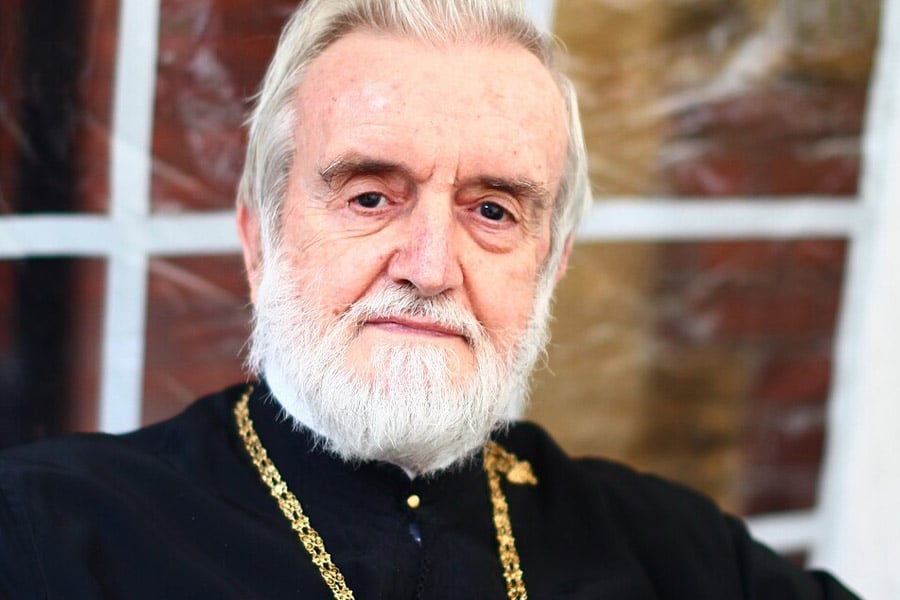
CHST 7130 Z1 | Spring 2026
The Theology of Metropolitan John Zizioulas
Synchronous | Thu 2:10-4:30pm
This seminar explores the Metropolitan of Pergamon, John Zizioulas (1931–2023), in dialogue with contemporary Christian and philosophical thought through an integrated study of his life and theology. Tracing his path from Kozani to Athens, Geneva, Harvard, Edinburgh–Glasgow, Rome, Thessaloniki, and finally the Phanar, students examine how formative experiences shaped Zizioulas’ synthesis of personhood and communion, eucharistic ecclesiology and episcopacy, pneumatology, eschatological hermeneutics, and primacy/synodality. Readings include Being as Communion, Communion and Otherness, Remembering the Future, and key ecumenical texts (Ravenna, Crete, For the Life of the World), with particular attention to ecology, bioethics, and major theological developments of the 20th and 21st centuries. The course culminates in a “bio-theology dossier” that integrates primary sources with a critical biographical timeline. Photo courtesy of James Hyndman.
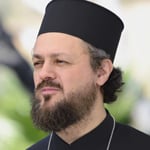
Instructor
His Grace Maxim Vasiljevic
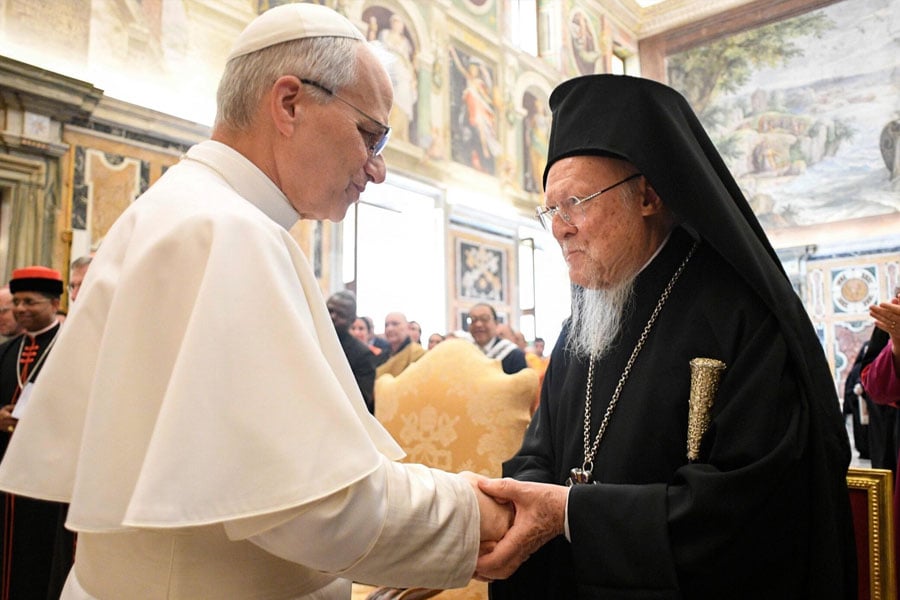
CHST 7701 H1 | Spring 2026
Seminar: Orthodox-Roman Catholic Relations
Hybrid | M 10-12:20pm
Following a review of the issues of alienation and schism, the course will examine the documents of the contemporary bilateral dialogues between the Orthodox Church and the Roman Catholic Church. The course fulfills the World Regions/Ecumenism requirement. Photo courtesy of CNS photoVatican Media.
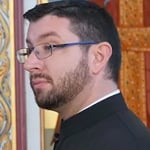
Instructor
Fr. Philip Halikias

DOGM 6005 Z1 | Spring 2026
Dyothelite Christology and Its Significance
Asynchronous
This course examines the content and theological significance of classical Dyothelite Christology. Students will engage with key primary sources of the Monothelite controversy, including the writings of St. Maximus the Confessor, St. John of Damascus, and the Definition of Faith of the Sixth Ecumenical Council. Through close reading and analysis, the course explores both Monothelite and Dyothelite positions and considers the enduring implications of Dyothelite Christology for systematic theology and the Church’s understanding of the person of Christ.
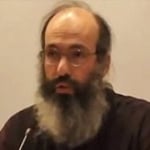
Instructor
Fr. Demetrios Bathrellos

DOGM 6051 Z1 | Spring 2026
Dogmatics II
Asynchronous
The doctrines of Christology, Pneumatology, and Ecclesiology, emphasizing the conciliar Patristic Tradition. Emphasis will be placed on certain patristic writings and on the official statements of the Ecumenical Councils.

Instructor
Fr. Demetrios Bathrellos

DOGM 6075 Z1 | Spring 2026
Dogmatics III
Asynchronous
The study of the seven holy sacraments: baptism, chrismation, Eucharist, ordination, matrimony, repentance and unction in historical, liturgical,and dogmatic perspective.
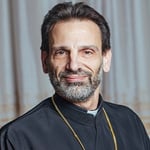
Instructor
Fr. Philip Zymaris
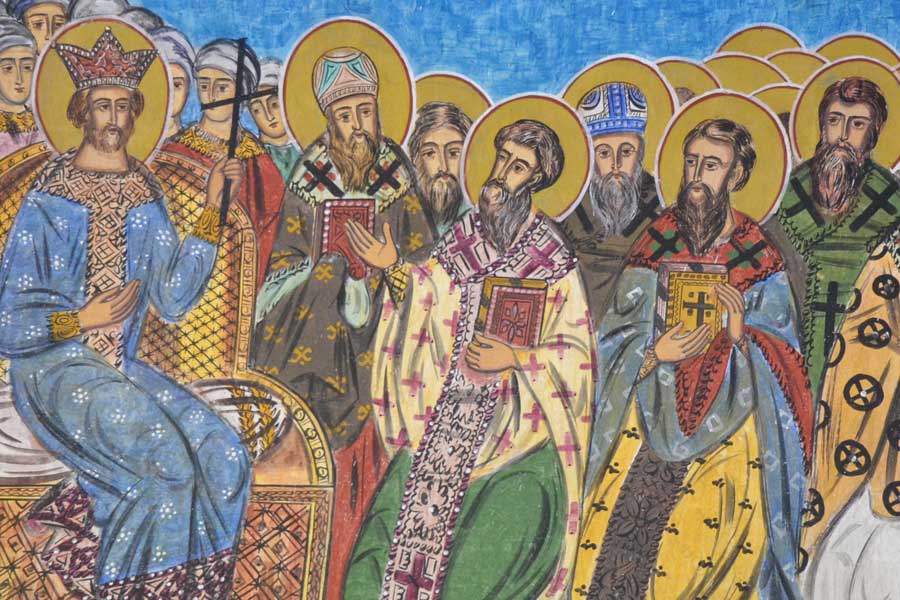
INDS 7100 Z1 | Spring 2026
The Ecumenical Movement: The Sources
Synchronous | M 6:30-8:50pm
The Ecumenical Movement that started in the second half of the 19th century does not constitute an ideology but rather reflects the authentic commitment to reconcile divided Christians in the unity of the Church and the reality of communion. Throughout the past century, the quest for Christian unity has assumed many shapes and forms that may be studied through major documents produced along the history of the 20th century and beyond. This course will define the boundaries of Ecumenism and its challenges for contemporary Orthodoxy by looking inward as well as outward as faithful and thoughtful Christians.
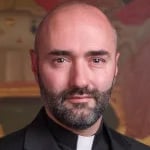
Instructor
Fr. Nicholas Kazarian
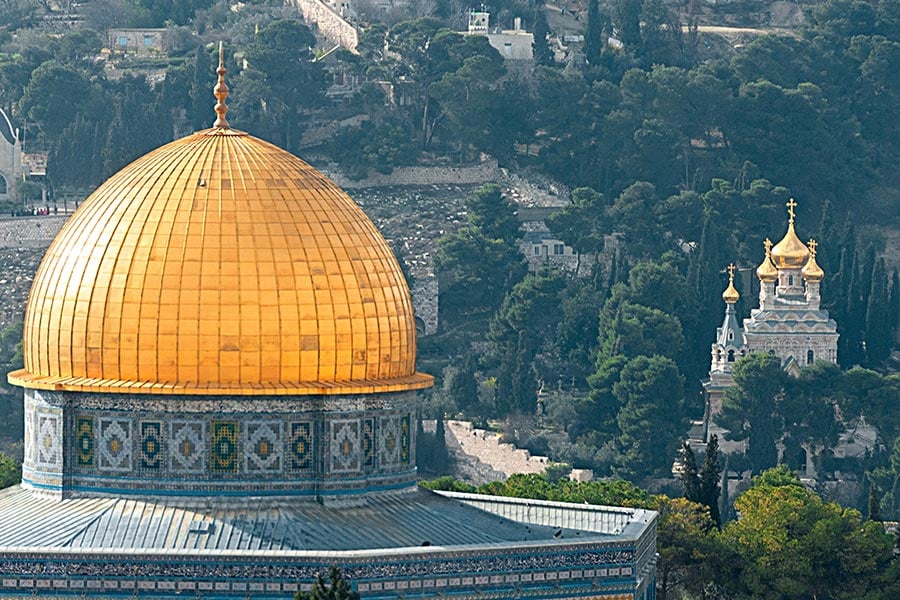
INDS 7120 Z1 | Spring 2026
Orthodox Christian-Muslim Relations
Asynchronous
For more than 13 centuries, Orthodox Christians and Muslims have lived among one another and shared the same societies and cultures. Orthodox Christian relationships with Muslims have been one of the most enduring and impactful factors in Orthodox church history, yet the profound complexities of these relationships have often been forgotten across the centuries or obscured by the context of modern politics. The Orthodox Christian-Muslim Relations course will introduce students to the history of Orthodox Christian-Muslim relations by utilizing historical, theological, and anthropological approaches to this topic. Areas of particular focus will include a comparative analysis of the experiences of Orthodox living under Muslim rule (as in the ‘Abbasid and Ottoman Empires) and Muslims living under Orthodox rule (as in the Russian Empire), the transformative effects of modern nationalism, and the history of Orthodox theological approaches to Islam.
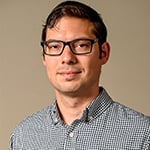
Instructor
Dr. Philip Dorroll
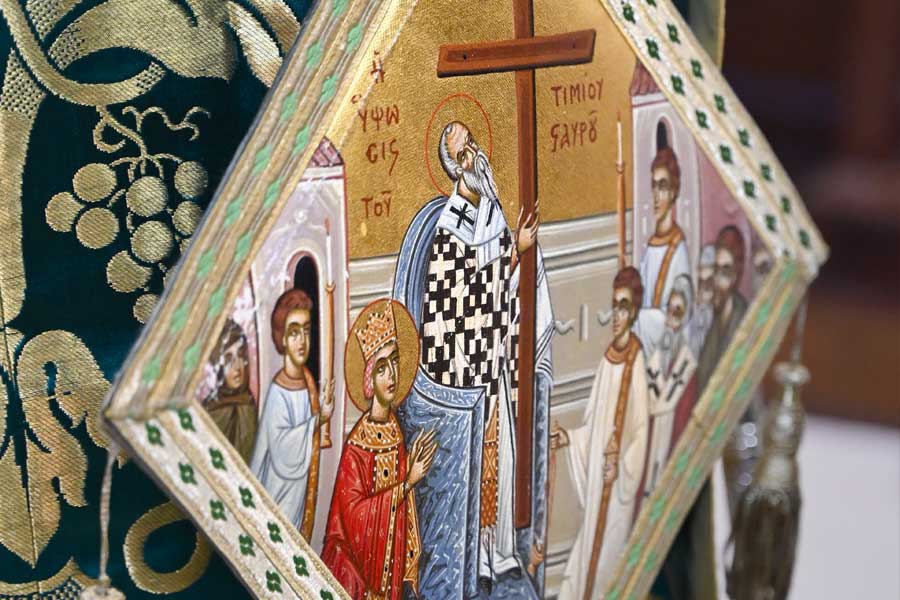
LITG 5002 Z1 | Spring 2026
Liturgics
Asynchronous
This course will explore the structures, content, theology, and ethos of the Church's liturgical life. It will also provide a brief but inclusive glimpse of the historical evolution of the liturgical rites. Furthermore, the Liturgy will be studied from pastoral, spiritual, and theological perspectives. The course seeks to provide the student with basic theological criteria for the comprehension of the whole liturgical tradition of the Church.

Instructor
Dr. Philip Zymaris

MDGK 5212 Z1 | Spring 2026
Beginning Modern Greek II
Synchronous | MW 7-8:20pm
A growing emphasis on reading, vocabulary building and writing as well as an extensive use of oral sills acquired in the first semester. Prereq: Beginning Modern Greek 1.

Instructor
Kleanthi Mavrogiannaki

MDGK 6312 Z1 | Spring 2026
Intermediate Modern Greek II
Synchronous | TR 8-9:20pm
Intermediate Modern Greek II is a 3-credit course designed for students with previous instruction in Modern Greek equivalent to five 3-credit semesters of academic work (a total of 15 credits). After a quick grammar review, the emphasis is on vocabulary building and conversational fluency. Prerequisite: Intermediate Modern Greek I

Instructor
Maria Kouti
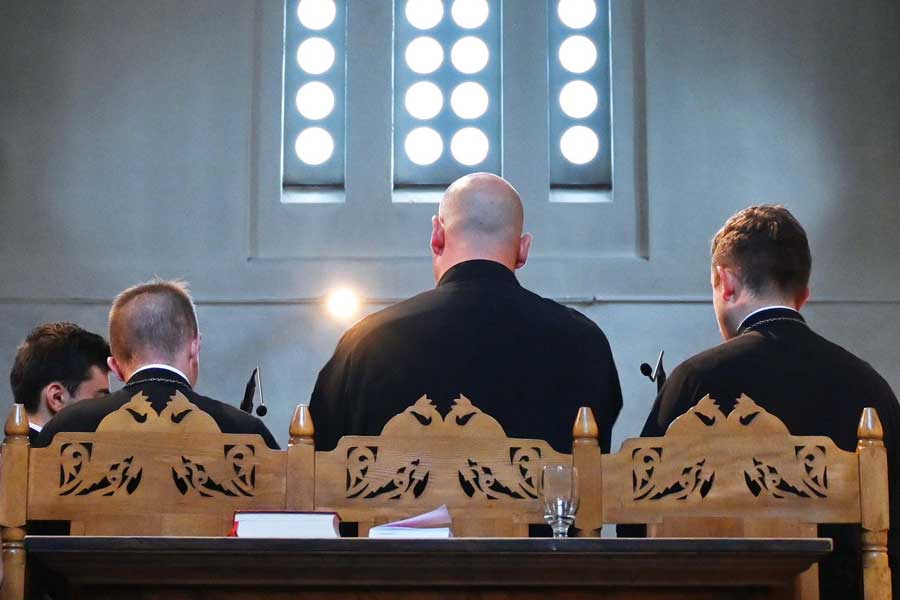
MUSB 5002 Z1 | Spring 2026
Ecclesiastical Chant I
Synchronous | W 1:40-3:20pm
The eight tones are studied. Hymns from various services, including Vespers and the Divine Liturgy are chanted in English. Prereq: Byzantine Music I and II.
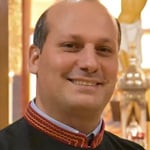
Instructor
Georgios Theodoridis
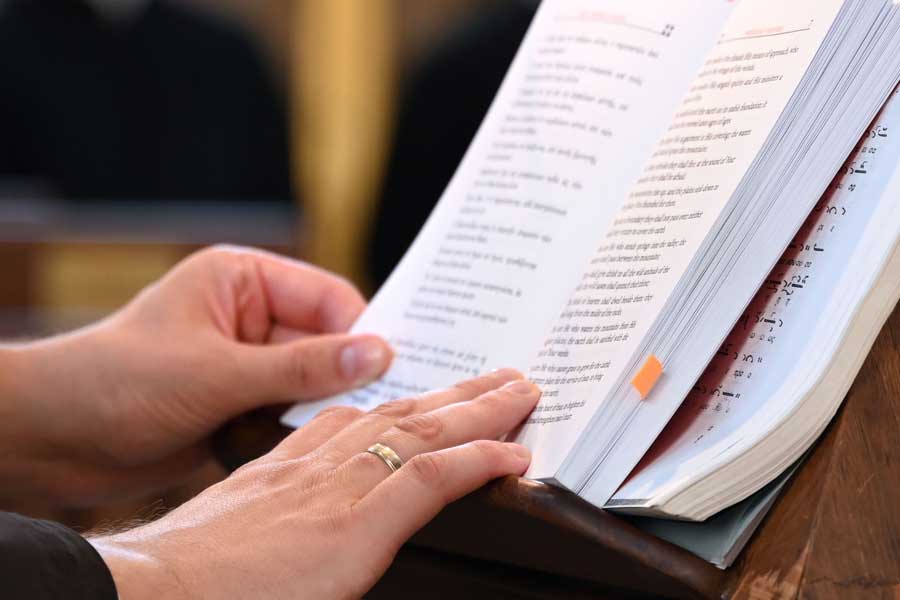
MUSB 6022 Z1 | Spring 2026
Advanced Chant In English
Synchronous | W 3:30-4:50pm
This course is a study of the standard hymns ( Lord I have Cried, daily Prokeimena, God is the Lord, Great Doxology, Antiphons, Trisagion, etc.) of vespers, orthros, divine liturgy, and the sacraments for practical use. All of the hymns will be studied in English in all of the eight modes with the aid of various musical settings.

Instructor
Georgios Theodoridis

NEWT 5111 Z1 | Spring 2026
The Gospel of Matthew
Asynchronous
This course builds skills for interpreting the Scriptures by studying their linguistic, historical, patristic, liturgical, and iconographical contexts. In addition, it studies the Gospel of Matthew in its historical setting, exegeting select passages from it. The goal of this course is to train students to study the Holy Scriptures for teaching, preaching, and personal spiritual formation. Classes will include lectures and discussions on the theological, literary, and historical aspects of the Gospel of Matthew. The second half of each class session will focus on studying a passage from Matthew to build exegetical skills. The students will have regular opportunities to practice certain skills. Students will participate in interpreting specific passages and share their work in class. Students who have studied Greek should bring both an English and a Greek New Testament to class. This course satisfies NT Exegesis for MDIV students.
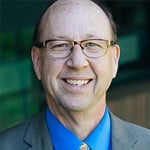
Instructor
Dr. Bruce Beck
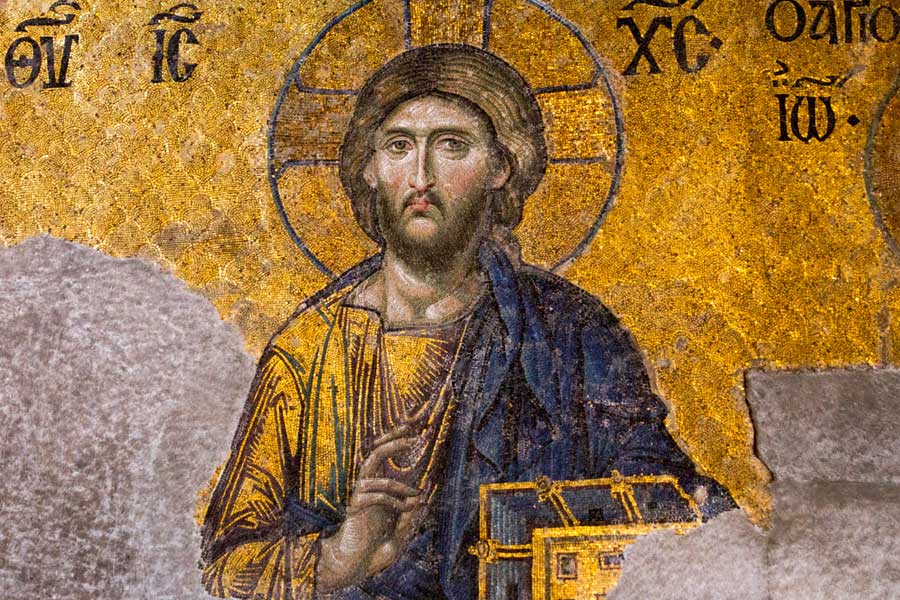
OLDT 7301 Z1 | Spring 2026
Christ in The Old Testament
Asynchronous
Christ’s birth, life, crucifixion, and glorious resurrection were all prophesied centuries earlier in Old Testament times. This course aims to reconstruct the prehistory of Christ or the Old Testament messianism as it unfolds in the Pentateuch, Psalms and Prophets. Selected messianic texts will be interpreted in the light of patristic traditions with references to modern scholarship as well. Satisfies OT Exegesis.
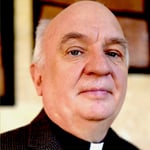
Instructor
Fr. Eugen Pentiuc

PAST 6022 H1 | Spring 2026
Theology Of Pastoral Care II
Hybrid | MW 9:10-10:30am
Theology of Pastoral Care II is intended to build upon Theology of Pastoral Care I by presenting a framework for understanding contemporary pastoral issues through the lens of Orthodox theology of the person, sickness, healing, and salvation. This class is not intended to provide you with the 'right' answers for pastoral decisions. Rather, this course is designed, through the readings, class discussions, and assignments to develop your understanding of Orthodox pastoral care and your thinking as an Orthodox Christian and future minister/pastor. The models of Orthodox Pastors/Saints explored in the first semester class serve as witnesses to the Orthodox pastoral care framework we will develop and discuss this semester as we explore contemporary pastoral issues, and secular theories and research. Particular attention will be placed on understanding how to access and integrate current secular knowledge into an Orthodox worldview todevelop an appropriate pastoral response. Students will be invited to explore and discuss different dimensions of the pastoral care relationship and explore, independently and as a class, how one might address contemporary pastoral care issues. As in the first semester, particular emphasis will be placed on how we work together in the classroom, and on campus, as we develop an Orthodox understanding and approach to pastoral care.
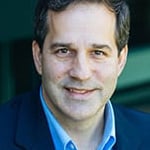
Instructor
Dr. Philip Mamalakis

PAST 6052 H1 | Spring 2026
Marriage and Family
Hybrid | W 2:10-4:30pm
The course will examine the Orthodox theological understanding of marriage and family. It will include a focus on the characteristics of both healthy and unhealthy relationships. Issues which negatively affect marital and family relationships, such as addictions, as well as psychological, verbal, physical, and sexual abuse, will be examined. Attention will also be given to clergy marriages and the issue of clerical "burnout." The role of the pastoral caregiver in ministering to marriages and families will be emphasized.

Instructor
Dr. Philip Mamalakis

PAST 7015 H1 | Spring 2026
Pastoral Counseling: Theory and Practice
Hybrid | M 6:30-8:50pm
Listening is at the heart of pastoral counseling. Yet what the pastor/minister hears is shaped by his or her theoreti cal orientation, belief system, worldview, and lived exper ience. This course seeks to give students the opportunity to study different pastoral counseling theories as they go beyond the limits of their own stories in the context of practicing foundational counseling skills.

Instructor
Dr. Philip Mamalakis
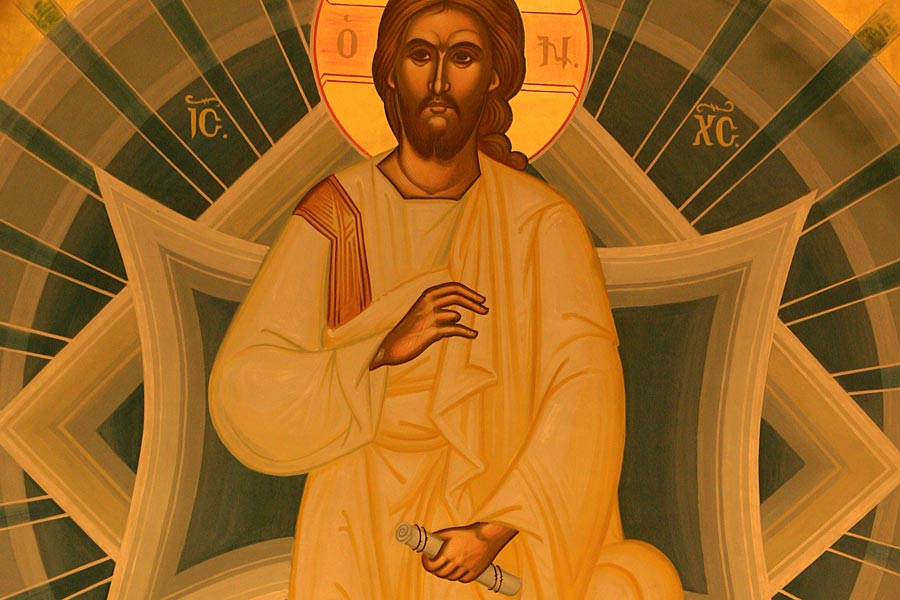
PAST 7025 Z1 | Spring 2026
The Sacred Arts as Mystagogical Catechesis
Synchronous | T 6:30-8:50pm
In the earliest centuries of Christianity, “mystagogy”—the meaning of the Church’s worship, its environment, and its ritual practice—was conveyed to adult converts through catechetical orations. Over time, as initiates came normatively to be received in infancy, mystagogy had to be taught through other means. Individual writers composed standalone treatises, which were composed and disseminated, and the Church in the Early and Byzantine periods incorporated these, and earlier liturgical hermeneutics through the interplay of homiletics, hymnography, architecture, and iconography. Students in this seminar-format class will investigate development of the content and form of mystagogy by engaging its primary sources and select studies: beginning with the scriptures, early church orders, and catechetical orations; in the next phase, moving to the texts of (ps.) Dionysios the Areopagite and St. Maximos the Confessor; then, turning to elaborations in sacred architecture and the development of hymnography, such as the historical kontakion with its influence on preaching; after that, looking toward the iconographic programs of Middle and Late Byzantine architecture following the defeat of iconoclasm; and finally, critically examining post-Byzantine and modern examples, identifying opportunities for historical recovery, contemporary synthesis, and future growth. Through collaborative and individual research, students will engage texts and material culture alongside one another, analyzing their exegetical content and their vision of Orthodox Christian worship.
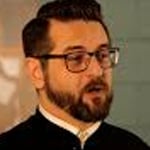
Instructor
Fr. Lucas Lynn Christensen

PAST 7110 H1 | Spring 2026
Worldwide Christian Missionary Movement
Hybrid | T 6:30-8:50pm
This course will offer a survey of the spread of Christianity from its apostolic origins in Jerusalem in the first century to “all the nations” throughout the world by the 21st century. Christianity is the largest World Religion with 2.5 billion adherents. We will look at missionary efforts from the Eastern Orthodox, Roman Catholic and Protestant/Evangelical perspectives, focusing on their different missionary methodology and history. Each different historical period offers examples of vast and rapid spread, as well as periods of stagnation or retreat. We will discuss reasons behind these different attitudes and historical events. During the last century the gravity of global Christianity has shifted dramatically into the southern hemisphere, with now the majority of Christians no longer being white European and North American, but people of color from outside these two geographic areas. We will discuss these changes, as well as look at the charismatic movement which impacts more than 25% of all Christians worldwide.
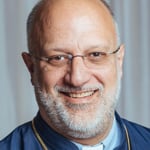
Instructor
Fr. Luke Veronis
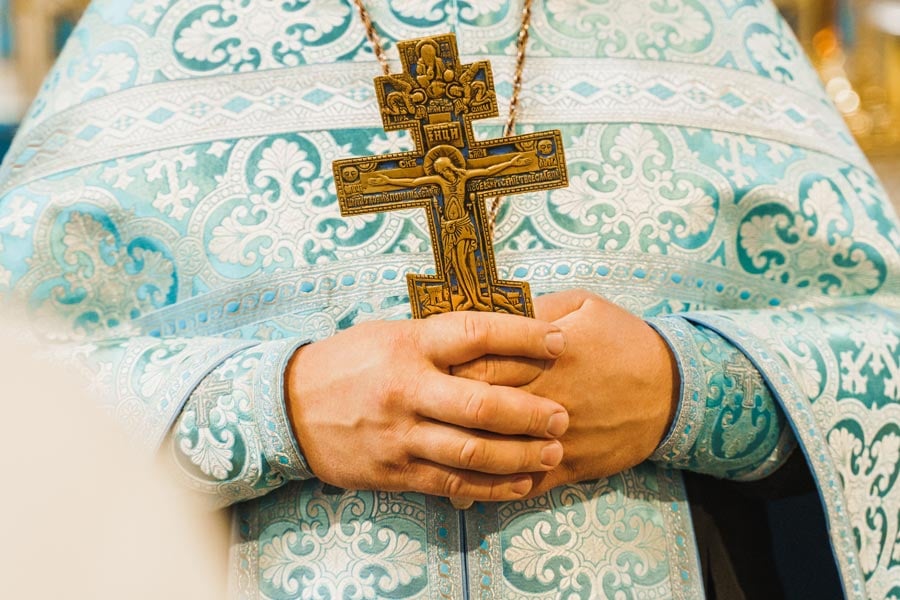
PATR 5030 H1 | Spring 2026
Orthodox Christianity II
Synchronous | F 2:10-4:10pm
A basic introduction to the history, theology, and spirituality of the Orthodox Church. Emphasis will be placed on the theology of the Ecumenical Councils, the writings of the Church Fathers, and classic works of Orthodox spirituality. Prerequisite: PATR 5020 Orthodox Christianity I This course is limited to students in the Youth/Young Adult Ministry and Leadership Certificate program.

Instructor
Fr. Constantine R. Newman

PATR 7202 Z1 | Spring 2026
St. John Chrysostom
Synchronous | M 6:30-8:50pm
St John Chrysostom is honored alongside St Basil the Great and St Gregory the Theologian as one of the Church’s Three Holy Hierarchs and Great Ecumenical Teachers. A fearless preacher of virtue and social justice, he was surnamed 'the Golden Mouth' for his eloquent rhetoric. Celebrated especially for his unique ability to open up the treasures of sacred Scripture, John is remembered not only as an ascetical figure and a theologian, but above all as an exegete. It was said in the Byzantine tradition that 'the mouth of Christ is Paul, and the mouth of Paul is Chrysostom.' In this course, we explore the seminal contributions of St John Chrysostom through a close reading of his representative sermons and theological treatises, offering students the opportunity to encounter the rhetorical masterpieces, inspired exhortation, and rousing polemic that shaped the tradition of the Orthodox Church for centuries to come. Prerequisites None (Patrology I and Dogmatics I strongly recommended).
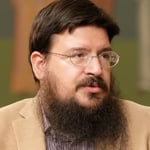
Instructor
Dr. Tikhon Pino
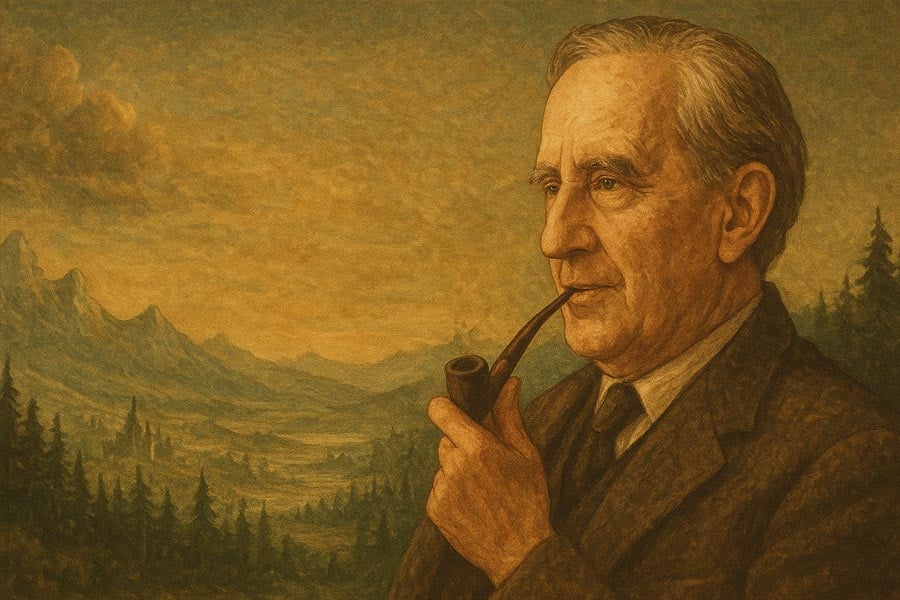
ENGL 2121 Z1 | Spring 2026
J.R.R. Tolkien: Mythopoeia, Middle-Earth and Modernity
Synchronous | T 6:40-9:00pm
This course will focus on writings by J.R.R. Tolkien, exploring a number of themes: truth and fiction, the middle ages and modernity, mythology and theology. Tolkien himself was a multifaceted person: a soldier, a friend, a linguist, a translator, a professor, a husband, a father, and, of course, a writer. In all these roles, he nurtured a profound Christian faith. His writings possess an inner consistency and depth rooted in philology, ancient cosmology, and spiritual wisdom unmatched in the traditions of fantasy literature. This course will explore Tolkien’s dynamic perspectives on faith, fantasy, death, myth, language, culture, art, Nature, and, of course, dragons.
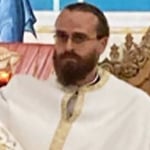
Instructor
Fr. Anthony Gilbert

INDS 3010 Z1 | Spring 2026
The Ministry of Fundraising
Synchronous | W 10-12:20pm
Translating theology into well-funded and engaging ministry that draws people closer to Christ remains a difficult challenge for clergy and lay ministry leaders. An effective leader – be they in a parish or nonprofit organization – must understand fundraising and donor relationships as an actionable ministry that is not just about meeting financial needs, but about expressing faith while building community and transformative ministries so that people can deepen their relationship to Christ and achieve His Salvation.

Instructor
Nicholas Chakos
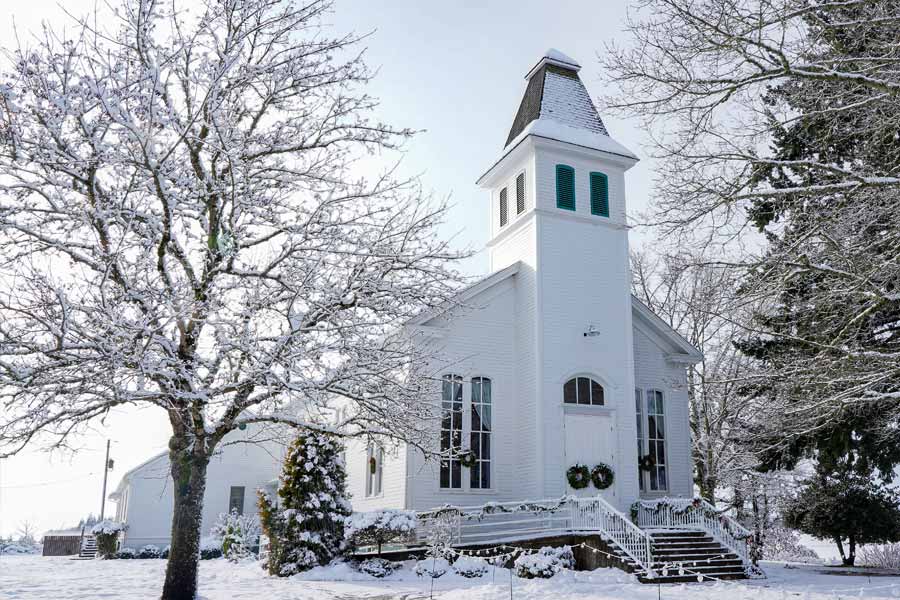
INDS 4015 Z1 | Spring 2026
Religion in America
Synchronous | TR 6:30-7:50pm
Have you ever wondered who the Missouri Synod Lutherans are? Or why revivalism plays such a central role in American religion? This course will offer a comprehensive introduction to the plethora of religions in America, focusing on the historical context of the religious landscape in the North American Continent from the seventeenth century until today. By illuminating the crucial figures and critical moments which have shaped our current faiths and perceptions within the continent, the course will lead to a more nuanced approach to dialogue and ministry in the America of today.
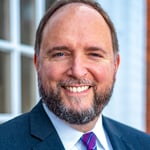
Instructor
Dr. Timothy Patitsas

MDGK 1212 Z1 | Spring 2026
Beginning Modern Greek II
Synchronous | MW 7-8:20pm
A growing emphasis on reading, vocabulary building and writing as well as an extensive use of oral sills acquired in the first semester. Prereq: Beginning Modern Greek 1.

Instructor
Kleanthi Mavrogiannaki

MDGK 2312 Z1 | Spring 2026
Intermediate Modern Greek II
Synchronous | TR 8-9:20pm
Intermediate Modern Greek II is a 3-credit course designed for students with previous instruction in Modern Greek equivalent to five 3-credit semesters of academic work (a total of 15 credits). After a quick grammar review, the emphasis is on vocabulary building and conversational fluency. Prerequisite: Intermediate Modern Greek I.

Instructor
Maria Kouti

MUSW 2500 H1 | Fall 2025
The Music of Epirus
Hybrid | TBD
The Music of Epirus will focus on the region’s historical, cultural, and musical significance. The course will delve into the region’s distinctive polyphonic singing and instrumental traditions, while exploring how these forms of music have influenced Greek cultural identity. The curriculum will include: In-depth analysis of Epirotic music Listening sessions Discussions on the evolution and contemporary impact of Epirus music Guest lectures and performances by celebrated musicians, including clarinet virtuoso Petroloukas Halkias and violinist Kostas Kostagiorgos from Epirus. This course is designed to offer an immersive educational experience that links historical traditions with modern musical practices.
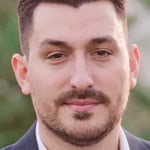
Instructor
Vasilis Kostas

NPLM 3100 Z1 | Spring 2026
Principles of Financial Management
Synchronous | TBD
An introduction to financial management concepts, this course covers the key principles of budgeting, financial analysis, capital structure, and financial decision-making. While the focus is on general financial principles, applications to the nonprofit sector will be discussed, including managing restricted funds and aligning financial strategy with organizational goals.

Instructor
Scott Fields

NPLM 3400 Z1 | Spring 2026
Accounting for Nonprofits
Synchronous | TBD
This course provides an introduction to accounting principles as applied to nonprofit organizations. Students will learn how to prepare financial statements, manage budgets, and ensure compliance with accounting standards specific to nonprofits. Topics include fund accounting, internal controls, and financial reporting for grants.

Instructor
Elaine Allen

NPLM 3800 Z1 | Spring 2026
Nonprofit Law and Ethics
Asynchronous
This course examines the legal and ethical frameworks governing the nonprofit sector. Topics include tax-exempt status, governance, compliance with state and federal regulations, and ethical decision-making. Students will explore case studies and engage in discussions about real-world ethical dilemmas and legal challenges faced by nonprofit leaders.

Instructor
Jesse Roberts
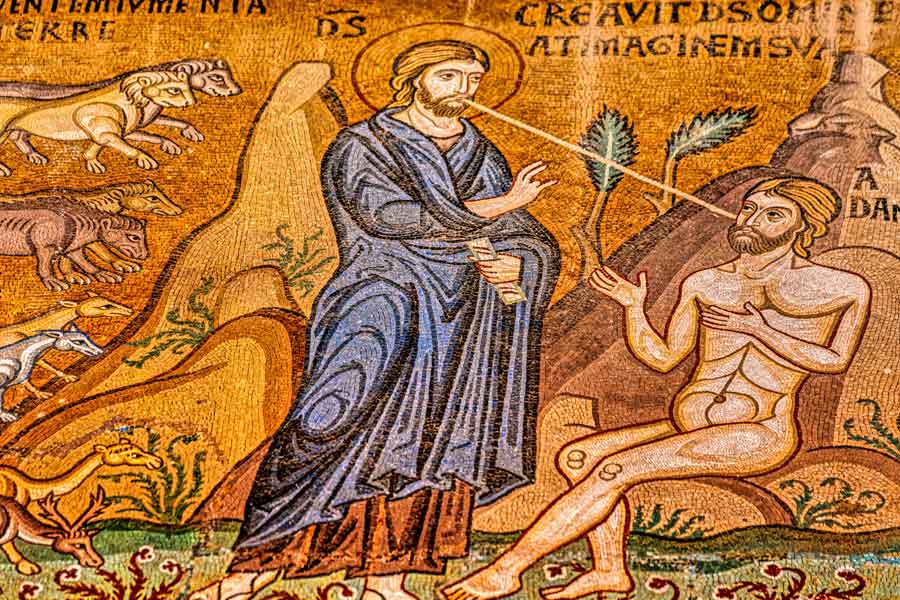
RELG 1175 Z1 | Spring 2026
Discovering Christ in Scriptures
Synchronous | W 6:30-8:50pm
This course focuses on the identity of Jesus, the Christ, according to the New Testament writings and other early Christian testimonies. It will give particular attention to how the New Testament writings draw themes, quotations, and typologies from the Old Testament Scripture in their depictions of Christ and the salvation of humankind through Him. In addition, we will study the historical setting of the early Church within the religious-cultural contexts of Second Temple Judaism. The Person of Christ will be our primary subject (both for the ancient Church and for us today); the Scripture will be the chief means of our inquiry; seeing the patterns of continuity between the Old Testament Scriptures and earliest Christianity will be one of the course's most memorable outcomes.

Instructor
Dr. Jeffrey Keiser
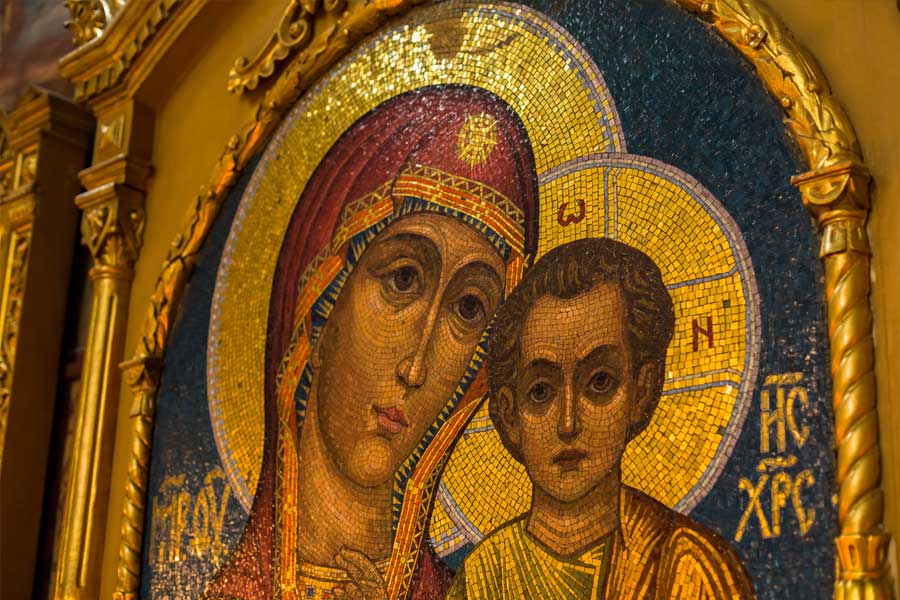
RELG 3017 Z1 | Spring 2026
Introduction to Orthodoxy
Synchronous | M 7-9:20pm
This course introduces students to Orthodox Christianity’s central theological tenets and its most critical historical developments. The course will survey topics such as Orthodox theology, liturgy and ritual, art and culture, the veneration of saints, asceticism and monasticism, prayer and spirituality, as well as issues confronted today by contemporary Orthodoxy.
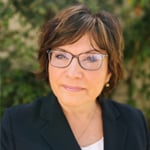
Instructor
Dr. Eve Marie Tibbs

RELG 4232 H1 | Spring 2026
Worldwide Christian Missionary Movement
Hybrid | T 6:30-8:50pm
This course will offer a survey of the spread of Christianity from its apostolic origins in Jerusalem in the first century to “all the nations” throughout the world by the 21st century. Christianity is the largest World Religion with 2.5 billion adherents. We will look at missionary efforts from the Eastern Orthodox, Roman Catholic and Protestant/Evangelical perspectives, focusing on their different missionary methodology and history. Each different historical period offers examples of vast and rapid spread, as well as periods of stagnation or retreat. We will discuss reasons behind these different attitudes and historical events. During the last century the gravity of global Christianity has shifted dramatically into the southern hemisphere, with now the majority of Christians no longer being white European and North American, but people of color from outside these two geographic areas. We will discuss these changes, as well as look at the charismatic movement which impacts more than 25% of all Christians worldwide.

Instructor
Fr. Luke Veronis
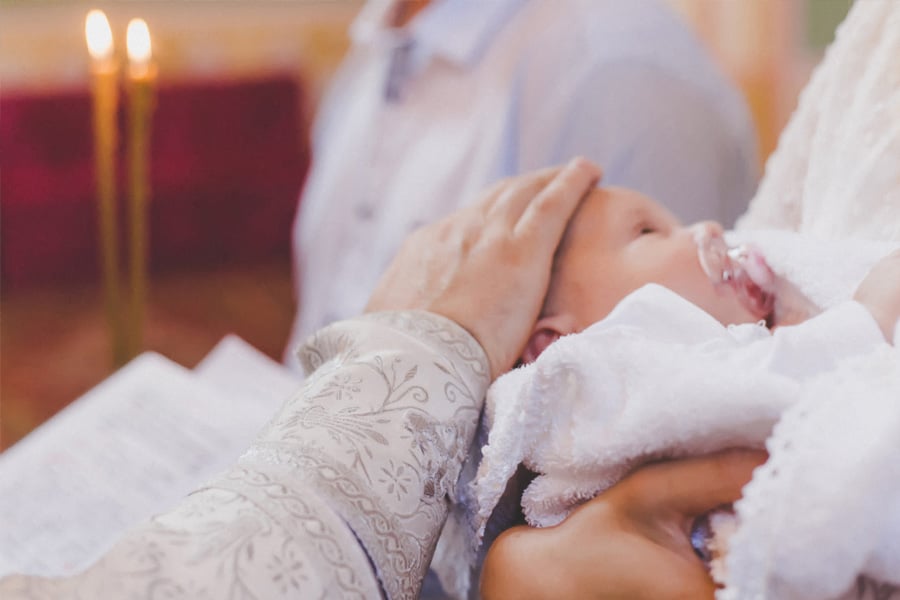
THEO 2516 Z1 | Spring 2026
Leadership of Parish Communities
Synchronous | TR 6:30-7:50pm
This course provides a study of the principles and practices of parish administration and leadership within the Orthodox Christian tradition. It explores both the spiritual and practical dimensions of leading a parish, emphasizing the development of pastoral, administrative, and leadership skills. Students will examine models of leadership, models of people management, financial management, community engagement, legal issues facing parishes, and the pastoral care necessary for effective parish leadership. The course aims to equip future clergy and lay leaders with the knowledge and tools needed to foster healthy, vibrant parish communities.

Instructor
Sandra Glisic
LET US KNOW IN WHICH COURSES YOU ARE INTERESTED
Contact Us
For more information fill out the inquiry form above and someone will be in touch with you soon. If you need to speak with someone sooner please contact the Director of Enrollment Management.
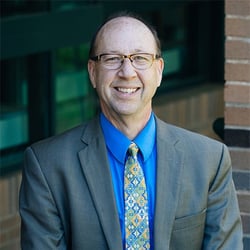
Dr. Bruce Beck, ThD
Director of Enrollment Management
617-850-1345